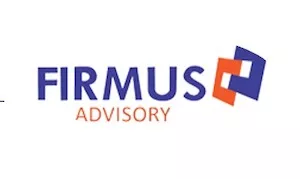- within Technology topic(s)
- in United States
- with readers working within the Law Firm industries
- in United States
- with readers working within the Chemicals industries
- within Finance and Banking, Energy and Natural Resources and Immigration topic(s)
Introduction
The international money transfer operator (IMTO) licence is one that is required for the provision of inbound cross-border payment services from overseas to Nigerians and foreigners in Nigeria such as the transfer of funds from individual or entities residing abroad to recipients in Nigeria and the payment of corresponding sums to such beneficiaries.
In Nigeria, only those who have been duly incorporated by the Corporate Affairs Commission (CAC) and licensed by the Central Bank of Nigeria (CBN) solely for the purpose of rendering IMTO services in Nigeria can provide these services. Previously, banks and fintechs could carry out IMTO services but this is no longer the case as they are now prohibited from carrying out such services but banks can act as agents of IMTO companies as a result of the CBN revised guideline released on the 31st of January 2024, for international money transfer services in Nigeria.
Please note that fintech who had previously obtained the license are also prohibited from carrying out IMTO services as well effective from the date of this guideline.
Requirements for Obtaining an IMTO License
- An application to the Director, Trade and Exchange Department of the CBN, accompanied with the following documents:
- Evidence of approval to operate in other jurisdictions or agency agreements
- Evidence of tax clearance and CAC incorporation documents for Nigeria entities
- Ownership structure of the IMTO
- Board of directors approval to operate with an IMTO license
- Return on allotment of shares and particulars of directors
- Profile of the company including the curriculum vitae of the Board and the management of the company
- Information on beneficial owners of the company (where applicable)
- Credit reports from a licensed credit bureau for the shareholders and key officers of the IMTO
- Foreign applicants must have a minimum share capital of US$1million, while Nigerians are expected to have the Naira equivalent of the US$1million as their minimum share capital.
- Deposit of the share capital in a designated account domiciled with the CBN which will be refunded after the grant of the license.
- The names of Authorized Dealer Bank(s) to serve as local agent(s) and copy of the agency agreement
- A business plan which must include:
- The nature of business
- Features of the scheme
- Internal control systems and monitoring procedures
- Security features that will be put in place
- Three years of financial projections and market analysis for the company
- Transaction and other charges that the company will bear
- Profit sharing agreement among the parties
- Diagrammatic illustration of transaction flows
- Consumer Protection and Dispute Resolution Mechanism
- Information technology policy of the company, including:
- Privacy Policy
- Information Ownership, Disclosure, and Loss Policies
- The Backup and Restore Policy
- Network Security Policy
- Encryption Policy
- Confidential Data Policy
- Password Policy
- Third Party Connection Policy
- Incidence Response Policy
- Physical Security Policy
- Enterprise Risk Management Framework
- Contingency and Disaster Recovery Plan (business continuity plan)
- Project Development Plan (time, location, operation, etc.)
- Upon complying with the above requirements, the applicant may be granted approval in principle (AIP) which would allow the applicant to open a bank account and process pre-operational processes. Please note that the AIP does not grant authorization for IMTO operations.
- Application to the CBN within three (3) months of obtaining the AIP for final approval.
To view the article in full click here
The content of this article is intended to provide a general guide to the subject matter. Specialist advice should be sought about your specific circumstances.


